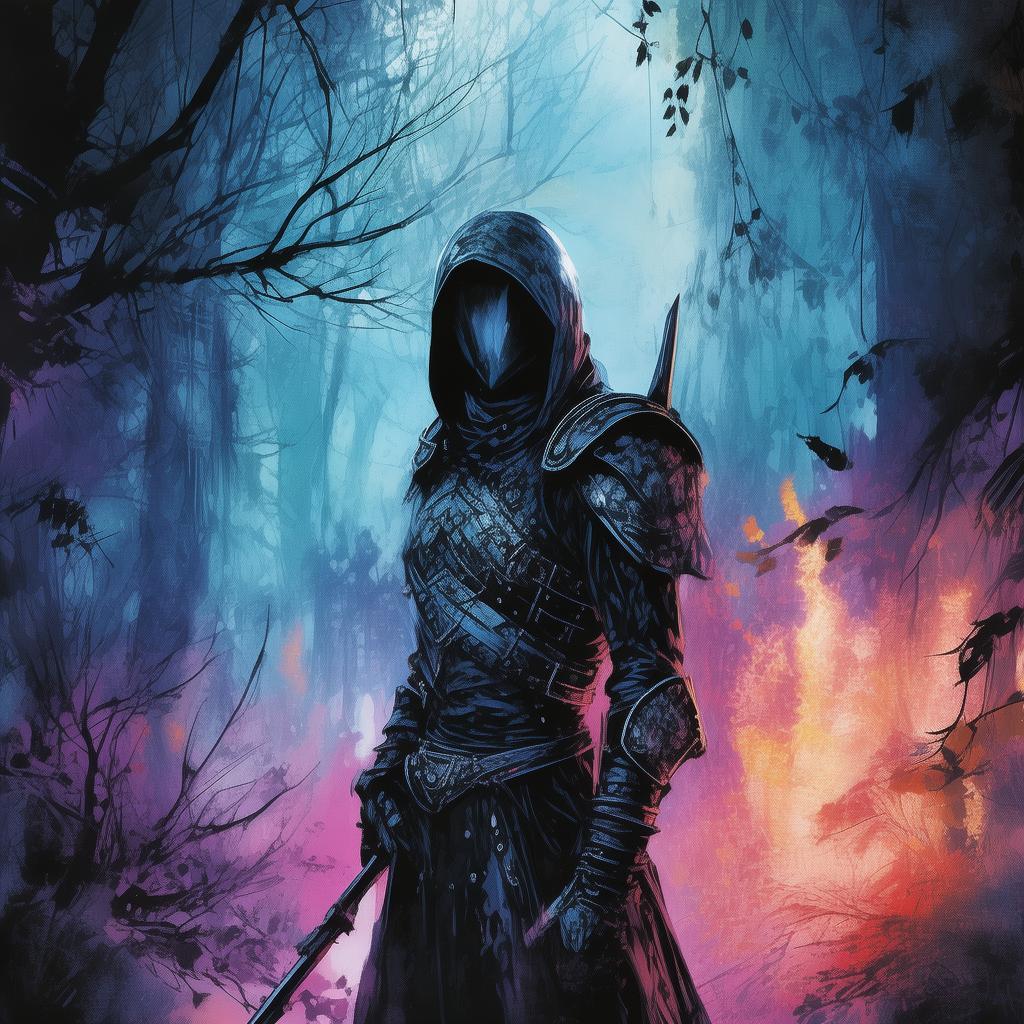The Buddha's Redemption: The Rebirth of Ashoka
In the twilight of his reign, King Ashoka of Magadha lay upon his bed, a bed of gold and silk, but his heart was heavy with the weight of a thousand regrets. Once a man of compassion, he had allowed his power to corrupt him, leading to the suffering of countless lives. His kingdom was a tapestry of both beauty and blood, and the thread of his reign was woven with the fibers of his own guilt.
As he lay in his opulent chamber, the last flicker of his life's fire waned, and he felt the cool hand of death upon his brow. In that moment, he was greeted by a figure cloaked in the robes of a monk, his eyes alight with the wisdom of ages.
"The time has come, Ashoka," said the monk, whose voice was like the rustle of leaves in the wind. "Your life has ended, and now you must face the consequences of your actions."
King Ashoka, in his last moments of consciousness, was thrust into a world beyond the veil of life, a place of light and shadow, of peace and chaos. The monk, who was revealed to be the Buddha himself, stood before him, his presence both comforting and daunting.
"You have much to atone for, Ashoka," the Buddha spoke, his voice like a gentle rain. "Your reign was marked by both greatness and greed. Your people suffer under your hand, and your soul is heavy with the weight of your wrongdoings."

The king, in his new form, a ghostly figure, was led by the Buddha through the afterlife, a journey that would test his resolve and challenge his understanding of justice and mercy. The Buddha spoke of the cycle of karma, of the consequences of one's actions, and of the path to redemption.
As they journeyed through the afterlife, they encountered the spirits of those Ashoka had wronged, their faces twisted in anger and despair. The king, seeing the suffering he had caused, was filled with remorse. "I see my folly, Buddha," he whispered, his voice filled with sorrow. "What must I do to make amends?"
The Buddha, understanding the depth of the king's contrition, led him to a great temple, where he was to face the trials of his past. The temple was a place of reflection, where the king would confront the spirits of those he had wronged and seek their forgiveness.
Inside the temple, the king was surrounded by the spirits of his victims, their faces contorted with pain and loss. The Buddha stood before him, his eyes steady. "You must make peace with these spirits, Ashoka. You must forgive yourself and ask for their forgiveness."
Ashoka, with a heart heavy with sorrow, addressed each spirit in turn. "I am Ashoka, the king who wronged you. I see now the suffering I have caused, and I ask for your forgiveness. I promise to live a life of compassion and service to others."
The spirits, at first skeptical, began to respond to the sincerity in his voice. They spoke of their pain, of the loss they had suffered, and of the hope they had for redemption. The king listened, his heart breaking with each word, but also finding solace in the understanding that he could change.
As the temple's bells tolled, signaling the end of the trials, the king turned to the Buddha, his eyes filled with tears. "I have seen my mistakes, and I have felt their weight. What is my path to redemption, Buddha?"
The Buddha smiled, his eyes softening. "Your path is clear, Ashoka. You must renounce your title and live a life of humility and service. You must build hospitals and schools, and you must teach compassion and kindness to your people."
The king, with the Buddha's guidance, renounced his crown and set out on a journey to atone for his past. He built the first hospitals, established the first schools, and taught his people the way of the dharma. His name, once known for its iron will, was now known for its compassion.
As the years passed, King Ashoka, now known as Ashoka the Great, became a beacon of hope and peace. His kingdom, once a place of suffering, became a place of enlightenment. And as he walked through his kingdom, he carried the wisdom of the Buddha, the knowledge that even the darkest soul could find redemption.
The story of Ashoka the Great became a legend, a tale of how one man could rise above his past and change the world. And as the story was told, it resonated with those who heard it, a reminder that no matter how deep the darkness, there is always a path to light.
In the end, King Ashoka found his redemption not just in the afterlife, but in the hearts of those he had touched. And as he lay on his deathbed, he knew that his legacy would live on, a testament to the power of compassion and the eternal possibility of redemption.
✨ Original Statement ✨
All articles published on this website (including but not limited to text, images, videos, and other content) are original or authorized for reposting and are protected by relevant laws. Without the explicit written permission of this website, no individual or organization may copy, modify, repost, or use the content for commercial purposes.
If you need to quote or cooperate, please contact this site for authorization. We reserve the right to pursue legal responsibility for any unauthorized use.
Hereby declared.









